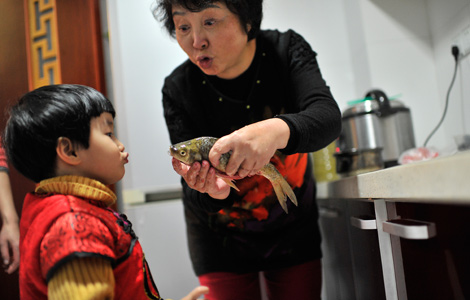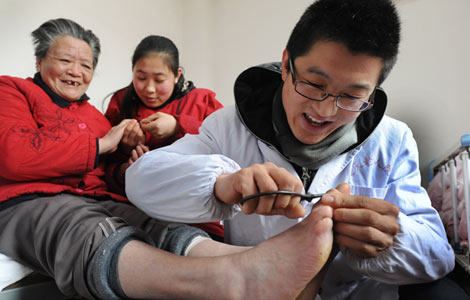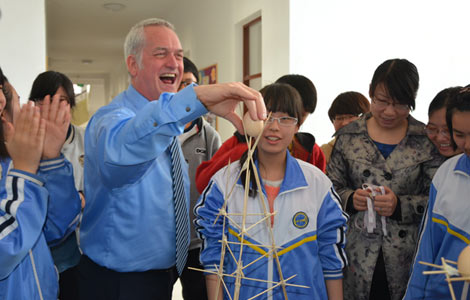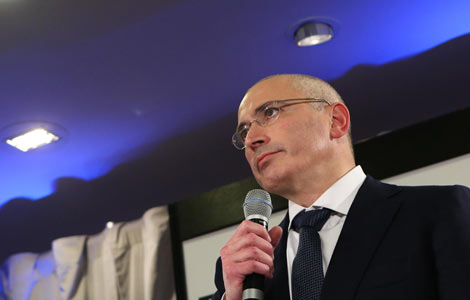Restoring a link to their heritage
Updated: 2013-12-24 07:41
By Elaine Tan (China Daily)
|
||||||||
No more stereotypes
"I was trying to do a double major in Chinese language and literature on top of my first major. An immersion-intensive program seemed to be a fast and effective way to learn, compared with taking Mandarin in my second year at the University of Wisconsin where I was studying for my bachelor's degree," she said.
"I'd had lessons with a tutor from the age of eight, so it wasn't difficult to learn the language as an adult. But living in Taiwan helped me see past the stereotypes and appreciate the people more, especially after learning the history."
Even in Kelantan, which is seen as the most "Malay" state in Malaysia, interest in Mandarin is rising, according to a report in The Straits Times. Many are following in the footsteps of the former chief minister Nik Abdul Nik Mat from Parti Islam Se-Malaysia, five of whose grandchildren attend Chinese-medium schools.
"Today, more Malays speak Mandarin than ever before. It's part of the transformation of Malaysia to help us gain a vital business edge in years to come, as China consolidates its economic power," said Najib Razak, Malaysia's prime minister, according to a report in the Chinese-language newspaper Sinchew Daily.
His son, Nor Ashman Najib, spent three weeks at the Beijing Foreign Studies University, where he studied conversational skills and Chinese culture. Earlier this year, he used his linguistic prowess to help his father charm voters during a Lunar New Year radio broadcast in which he spoke fluent Mandarin.
So it should come as no surprise to hear of a Malaysian student on a language program course in Beijing praying at a mosque, fasting for a month and celebrating Eid al-Fitr instead of the Lunar New Year, yet also communicating in Mandarin.

 A return to motherhood at 60
A return to motherhood at 60
 AK-47 inventor Mikhail Kalashnikov dies
AK-47 inventor Mikhail Kalashnikov dies
 Oil spill from Qingdao blast kills sea life
Oil spill from Qingdao blast kills sea life
 Ice storm hits Toronto
Ice storm hits Toronto
 A man and a child jump off Manhattan building
A man and a child jump off Manhattan building
 Male nurses in demand as caregivers for elderly
Male nurses in demand as caregivers for elderly
 Moving beyond language skills
Moving beyond language skills
 Khodorkovsky says he will not enter Russian politics
Khodorkovsky says he will not enter Russian politics
Most Viewed
Editor's Picks

|

|

|

|

|

|
Today's Top News
Private clubs are targeted by anti-graft campaign
China makes it easier to sue government
China promotes core socialist values
China deliberates adjusting one-child policy
Washington tries to shift spying blame to China
Swift justice urged for murder case
Policies to assist those who lost child
China's moon rover flexes muscles
US Weekly

|

|







